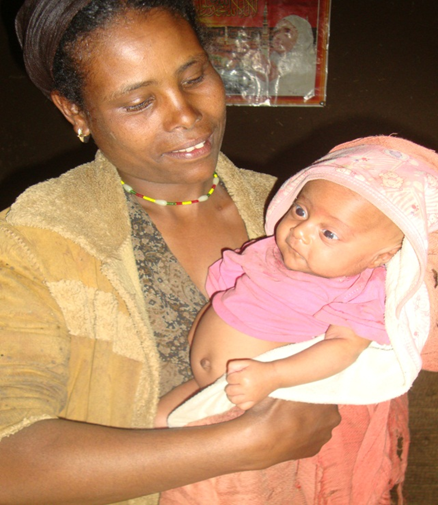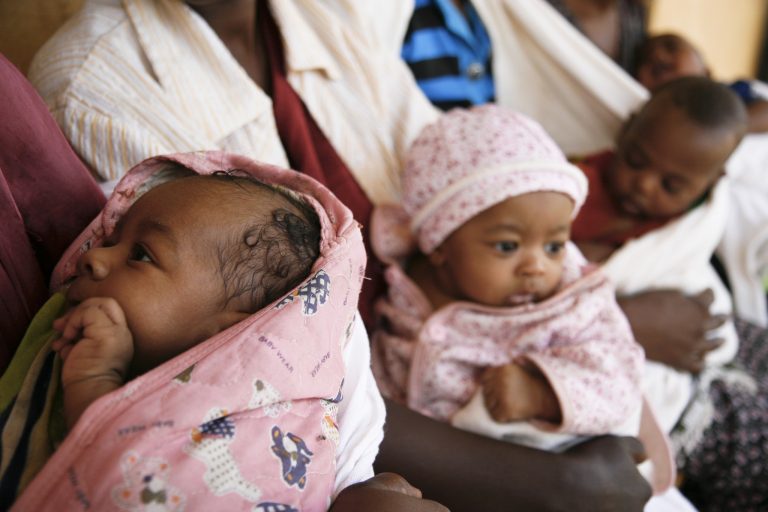About 3 million babies are born in Ethiopia each year, nearly 80 percent of them at home. The 2011 Ethiopia Demographic and Health Survey reports that newborn mortality rate is 37 per 1,000 live births – a rate that has stayed steady over the past 5–10 years; and newborn mortality accounts for 42 percent of all under-5 mortality.
To help improve these numbers, community-based newborn care (CBNC) is being implemented in Ethiopia, strengthening the Primary Health Care Unit and Health Extension Program by improving linkages between health centers and health posts. The Saving Newborn Lives project is playing a catalytic role to support the government’s efforts to scale up CBNC throughout the country in phases.
Fatuma and her husband live in Misarek Embur Kebele, Meskan District, Gurage Zone SNPPR, Ethiopia. The family depends on rain-fed agriculture on a small piece of land. Fatuma, 22, has given birth to three children at home. During her fourth pregnancy she was approached by a health extension worker (HEW) who informed her of the benefits of antenatal care (ANC) visits and delivery of her baby in a health facility.

Fatuma took the advice and had three ANC visits, two tetanus vaccinations, and was tested for HIV. She then delivered at Butajira Hospital. Though she had a safe delivery, the baby was small and unable to breastfeed. As the baby’s condition deteriorated, the doctors referred them to Back Lion Hospital in Addis Ababa. Since Fatuma couldn’t afford the travel, she returned home in fear for her baby’s life.
On her 6th day after delivery, HEWs from the health post visited her at home. They examined the baby, Mewded, as per the CBNC protocol. The baby was trying to suckle but not effectively. She weighed only 1600 grams (3.5 lbs) and her temperature was 34.4C (93.9F). The HEWs classified the baby’s condition as very severe disease. Since the mother had decided against referral, the HEWs put the baby on treatment for possible serious bacterial infection (PSBI). Mewded was given a gentamycin injection every 48 hours and dispersible amoxicillin tablets for seven days. HEWs also advised the mother to keep her baby on her chest with skin-to-skin contact to help her maintain her body temperature. With close follow-up by HEWs, Mewded’s condition improved and she gradually started to suckle her mother’s breast. Fatuma says, “the Lord sent me Aysha and Ejigayehu,” the HEWs who saved Mewded by treating her for PSBI.
As they had with Fatuma, CBNC-trained HEWs are improving care-seeking behavior throughout Fatuma’s community. They identify pregnant women and advise them on the importance of institutional delivery, danger signs in newborns, ANC, and timely postnatal care visits. Thanks to the HEWs, Mewded is now a healthy two year old baby!
